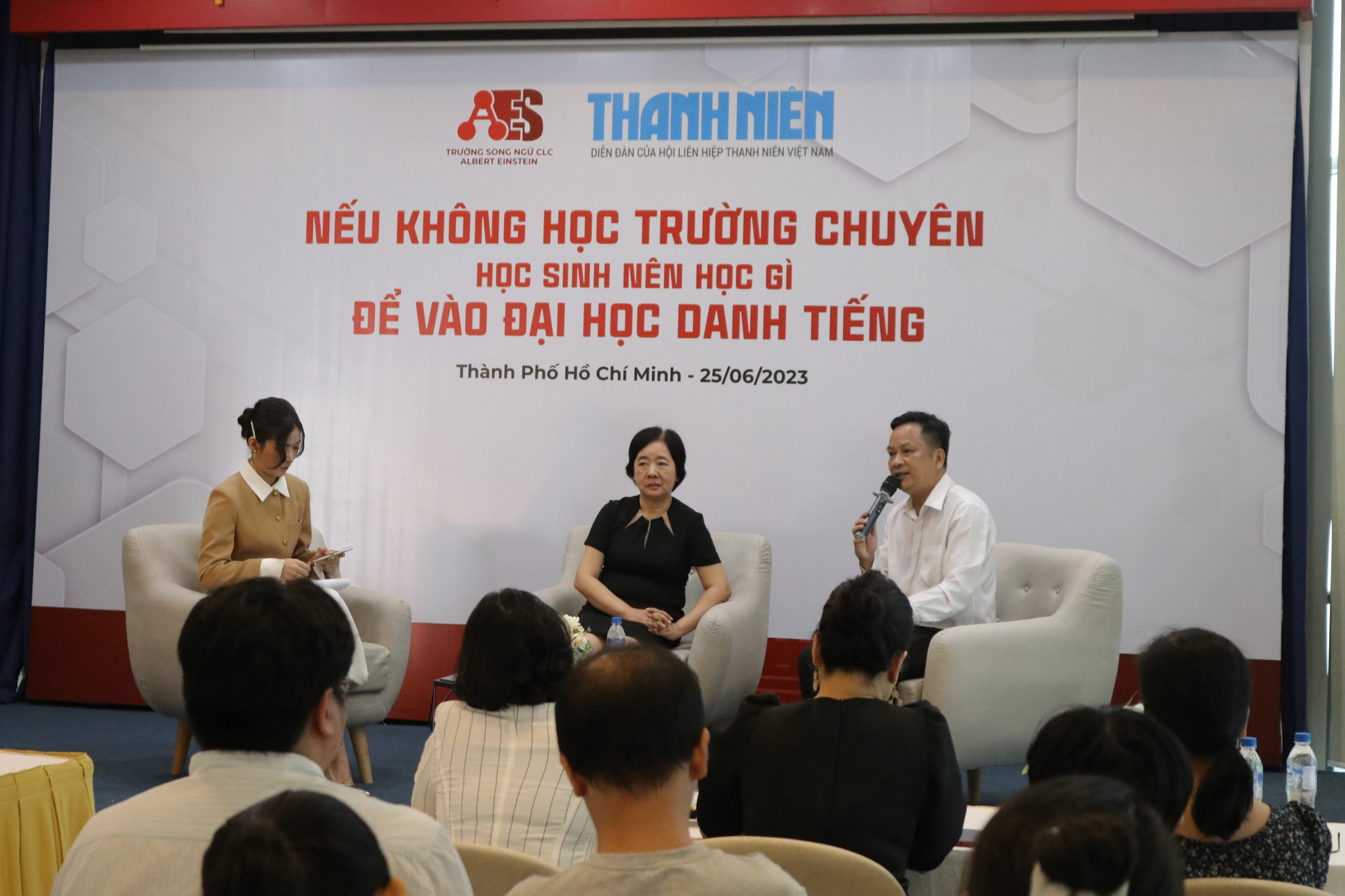
Dr. Tran Nam Dung (right cover), Ms. Dam Bich Thuy (center) at the talk show
Dr. Tran Nam Dung, PhD in Mathematics, is the Chairman of the Vietnamese AMO (American Mathematics Olympiad), Vice Principal of the Gifted High School (Ho Chi Minh City National University), and an expert in creating the STEAM program for this school.
Yesterday's talk show also had many particularly interesting opinions from Ms. Dam Bich Thuy, former founding President of Fulbright University Vietnam, member of the Board of Directors of EQuest education group.
"Non-specialized school students can compete equally with specialized school students"
Dr. Tran Nam Dung, a mathematician who is known as the one who ignited the love of mathematics with more than 30 years of experience in nurturing students who are good at mathematics, and is also an advisor for the Math Talent - STEM (AIMS) program at Albert Einstein School (part of the Canadian International School system), said that even entering domestic universities has many methods. And it is not only students from specialized schools who have the highest scores. Many students who are not specialized are still among the top students with high scores.
As for prestigious foreign universities, their selection requirements are very broad, from average scores, IELTS, SAT… social activities, leadership skills. Therefore, students from non-specialized schools can compete equally with students from specialized schools.
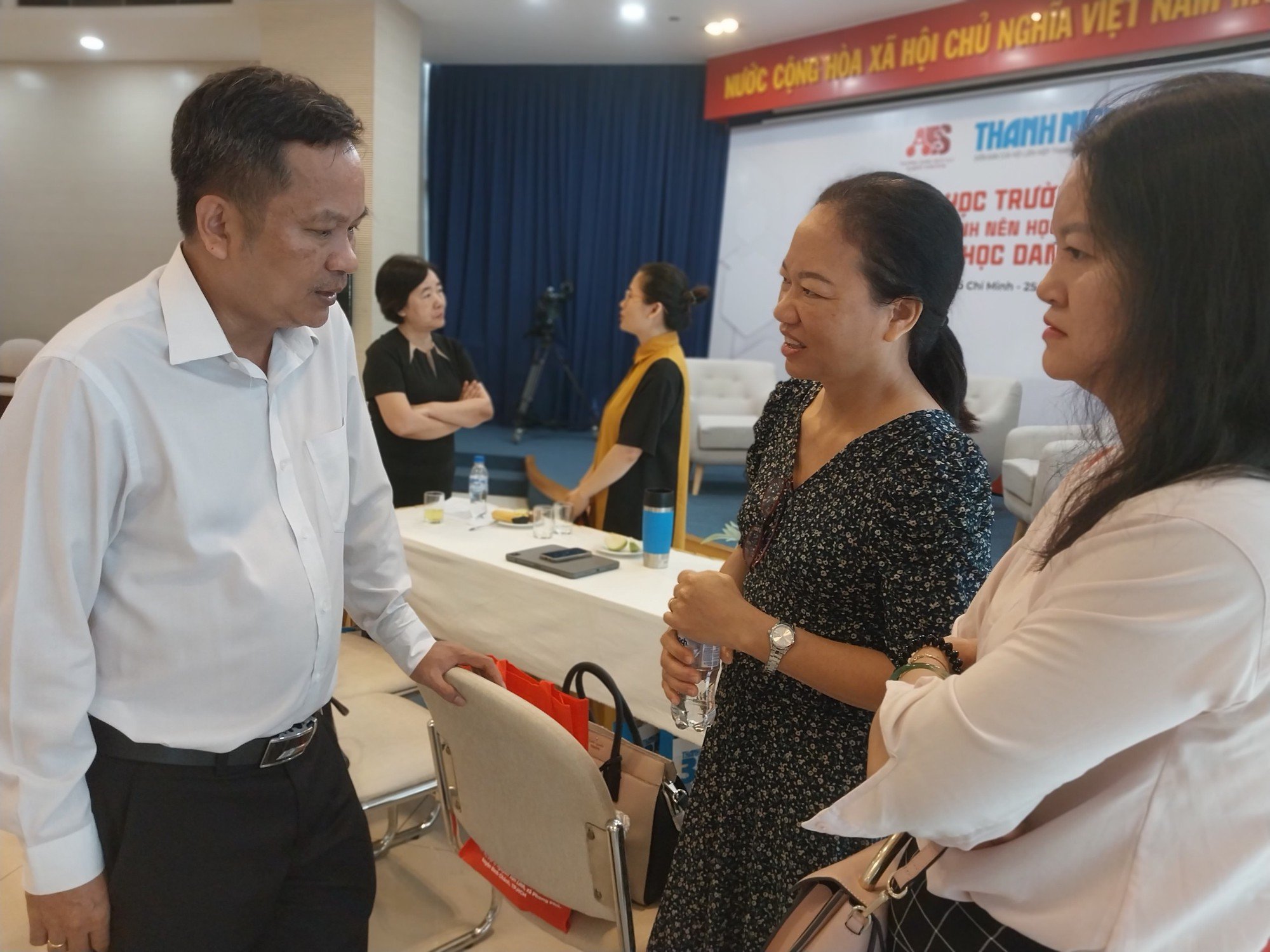
Mathematician Dr. Tran Nam Dung talks with parents after the program
According to Dr. Tran Nam Dung, students who do not have to focus on specialized studies may have an advantage in some areas. He cited a typical situation where many students from specialized schools, grade 11, participated in competitions for excellent students and won prizes, but by grade 12, they asked to leave the team to focus on studying for university entrance exams or to focus on preparing for studying abroad. Or in the past, when the Ministry of Education and Training allowed non-specialized programs in specialized schools, many students who passed specialized classes still asked to study in non-specialized classes (even though they were not allowed). "That said, students from specialized schools have advantages but also have their own pressures and difficulties," said Dr. Tran Nam Dung.
"If there is a school that creates an ambitious and competitive learning environment, allowing students to participate in many social activities and develop their abilities, then that is a reliable destination that students who have not yet entered specialized schools can aim for. Specialized schools are very good, but they are not the only opportunities for students," Dr. Dung said frankly.
"Prestigious universities look for unique individuals, not well-rounded individuals"
Speaking at a talk show, Ms. Dam Bich Thuy affirmed that "in reality, non-specialized schools give students another advantage that we have long overlooked."
The former founding president of Fulbright University Vietnam cited that when recruiting, top universities will look for unique individuals, not perfect people, with all 10s, who can do 100 jobs like 1,000 other students. Therefore, parents should believe in the uniqueness of their children.
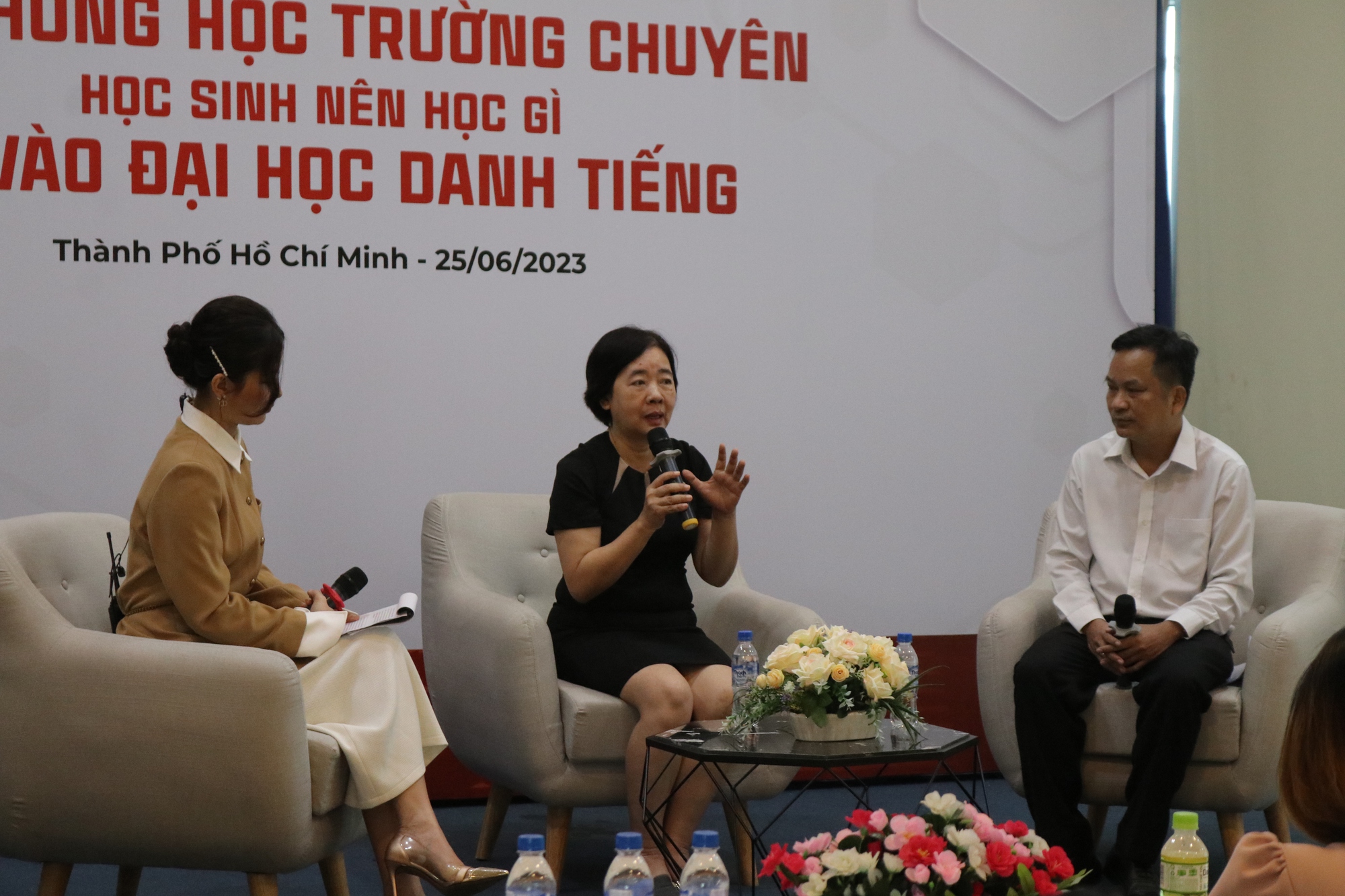
Ms. Dam Bich Thuy has many interesting things to share.
According to Ms. Thuy, to develop uniqueness, first of all, students need time to develop themselves personally. Second, what schools look for is what the student can bring to the community they are about to join. If a student is only good at math, he or she will have to compete with many other students who are good at math. But if he or she knows enough math, and he or she is good at chess or golf, these are advantages that will help him or her stand out in the application process. So besides time, what students need is an educational environment.
"An open educational environment, allowing children to develop their full potential, and bringing their best qualities to the admissions office, is an opportunity for them to enter top universities. So, choosing between investing 100% to let your children study 1-2 specialized subjects, or giving them an environment to study many subjects, find the subject they are most interested in, and bring all their abilities and passion for that subject to the admissions office... I think the second way will help children stand out in the admissions process to enter top schools," Ms. Dam Bich Thuy analyzed.
She gave another vivid example: when Fulbright University Vietnam went to the provinces to recruit students, a large number of students from specialized schools came. But after 4 years, in the first batch of students who just graduated on June 24, those who did not study at specialized schools had very different successes compared to those who studied at specialized schools.
"The important thing is not whether the school is specialized or not, but what and how the educational environment that school brings to the students," Ms. Dam Bich Thuy affirmed.
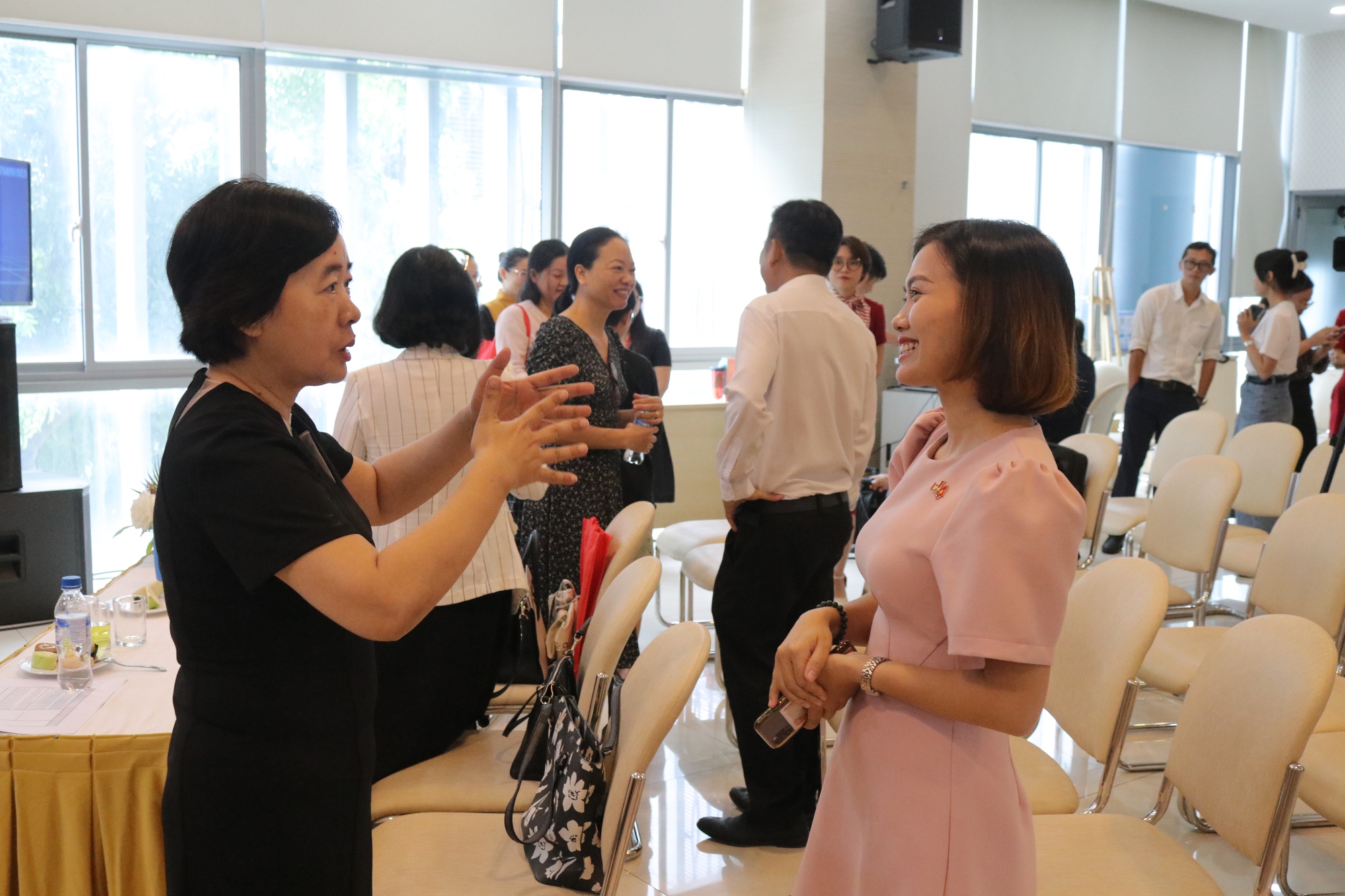
Ms. Dam Bich Thuy chatted with parents on the sidelines of the program.
The most special thing does not necessarily have to be the best thing.
Parent Tran Dat, whose child is about to enter 2nd grade, asked the program: "Prestigious schools around the world recruit students based on their children's outstanding grades, so how can we detect them? If my child likes history, geography, or sports but doesn't want to study science and technology, can he/she study STEM math?"
Ms. Dam Bich Thuy, a member of the Board of Directors of EQuest education group, replied that special points do not necessarily mean excellent things.
"I saw a normal student's profile if viewed from the perspective of 'other people's children', but the reason he was selected to enter the top 3 schools in the US was because for 6 years, near his house there was an elderly neighbor, single, suffering from Alzheimer's disease, memory loss, he always went to help her, bought food for her. He had a special point of unconditional love for others. Therefore, when students apply, find a unique point of themselves - be yourself and no one else," Ms. Thuy advised.
Math PhD Tran Nam Dung shared that the requirement of general education is to have a foundation, not too much depth, so for students studying social sciences, the STEM (AIMS) math talent program can also be helpful.
"I have many former students who specialized in math, but after graduating, they switched to many other fields and were very successful. Some of them became reporters and returned to interview teachers. Or there are students who specialized in math who turned to education, studied for a master's degree in England and were recently invited by the Gifted High School to take charge of the English team of gifted students. What they learned in high school will help them later. Now, study fully and broadly, instead of studying intensively right from high school."
Source link


![[Photo] Binh Trieu 1 Bridge has been completed, raised by 1.1m, and will open to traffic at the end of November.](https://vphoto.vietnam.vn/thumb/1200x675/vietnam/resource/IMAGE/2025/10/2/a6549e2a3b5848a1ba76a1ded6141fae)





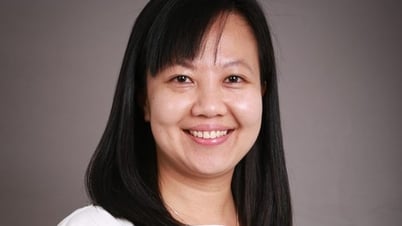


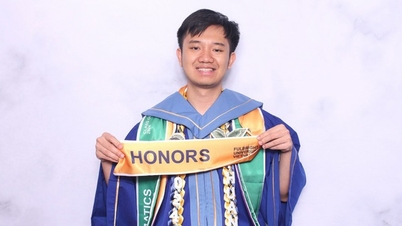

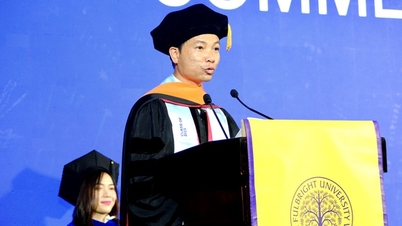

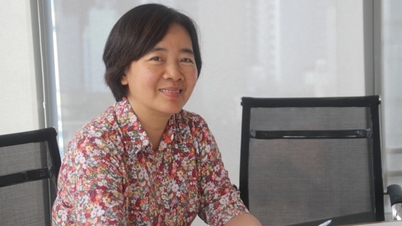
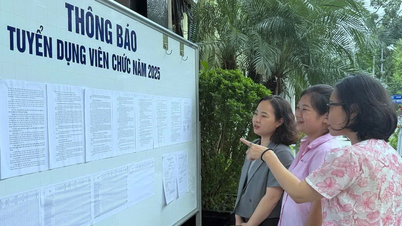

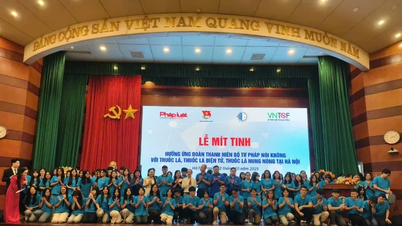





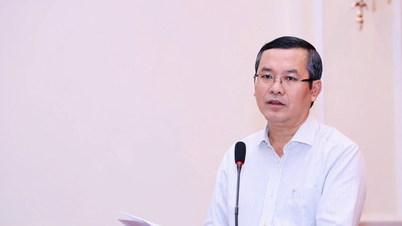




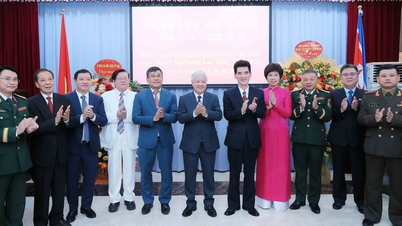
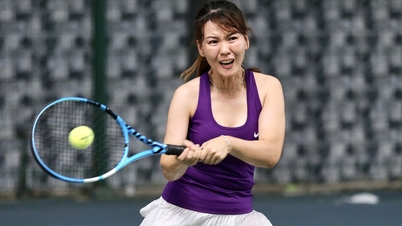



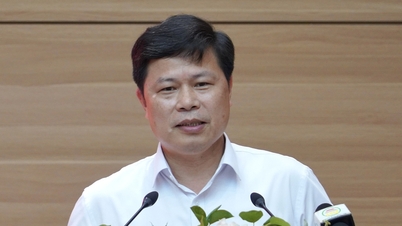
















































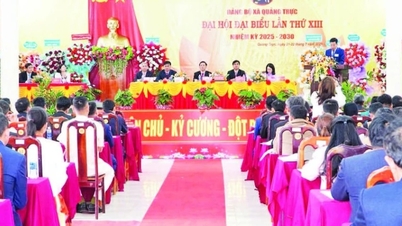



















Comment (0)